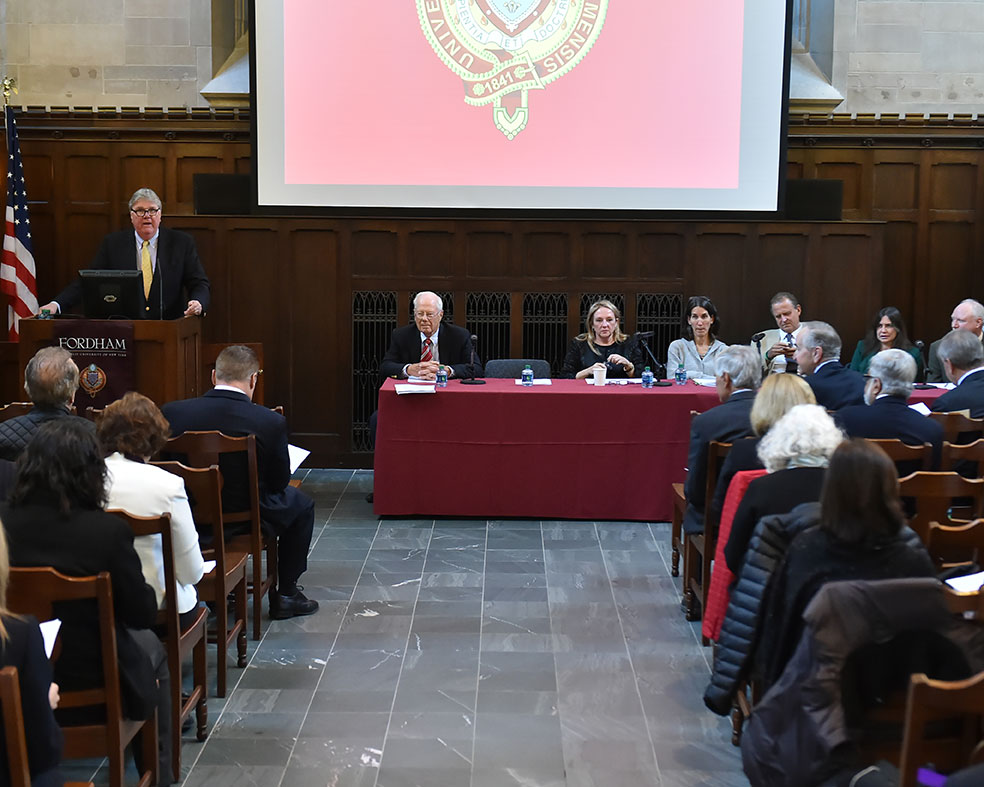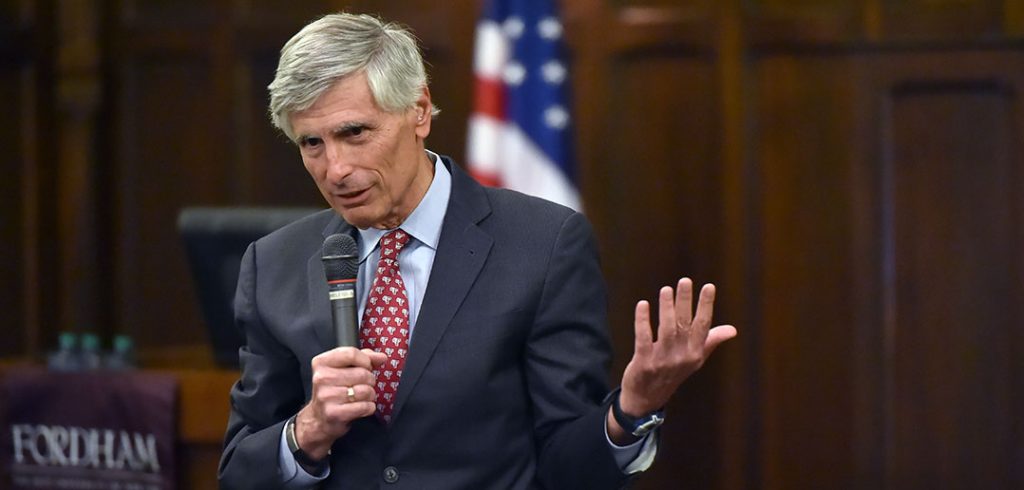Death can be an uncomfortable topic to discuss, especially if it revolves around concrete issues such as end-of-life medical care.
However, it is crucial to have those conversations, said renowned oncologist and Fordham alumnus Philip A. Pizzo, MD—especially when it comes to palliative care, a specialty of medicine that can help spare patients and their families from needless suffering.
Dr. Pizzo, FCRH ’66, offered the keynote address on Oct. 20 at “Humanizing Medicine: The Achievements and Future of Palliative Care,” sponsored by the Fordham University Science Council. The event, which also featured an interdisciplinary faculty panel discussion and a presentation by Calvary Hospital President Michael J. Brescia, MD, examined the latest discussions about palliative care in America.
Palliative care refers to a type of supportive care that focuses on controlling pain and relieving symptoms for a patient, rather than actively treating an illness, Dr. Pizzo said. Many people balk at this type of care when they or their loved ones are facing a life-threatening illness, because they believe it means eliminating medical treatment altogether.
“They don’t want to give up on active medical treatment,” said Dr. Pizzo, the David and Susan Heckerman Professor of Pediatrics and of Microbiology and Immunology at Stanford University School of Medicine.
“But palliative care is not a ‘handoff.’ I shouldn’t say to a patient, ‘It’s over, there’s nothing more I can do, so I’m handing you over to palliative care’… It’s not the removal of hope, but fusing it together [with active treatment].”

Photo by Dana Maxson
It was his Fordham education, Dr. Pizzo said, that taught him to prioritize human dignity. This humanistic approach stayed with him once he became a pediatric oncologist in the 1970s, a time when very few children survived cancer.
“I witnessed children dying with terrible pain that no medication could reverse despite our very best efforts,” he said. “I was constantly asking myself when these children were suffering: Is this appropriate? Isn’t this something we should help facilitate? Shouldn’t we help individuals to have as much dignity at the time of their death and not to suffer?”
In 2011, Dr. Pizzo co-led the groundbreaking Institute of Medicine report “Relieving Pain in America,” which included several recommendations pertaining to palliative care. One of the first recommendations was to reorganize the health care system so that high-quality end-of-life care was available and accessible to all individuals.
He cited a recent clinical trial published in the New England Journal of Medicine that studied the outcomes of adult lung cancer patients who received a combination of palliative care and active treatment. The study found that patients who received this combination of care lived on average three months longer than those patients who did not receive palliative care. (The patients were also happier, more mobile, and in less pain.)
“It’s important to not make a Faustian bargain between delivery of care and supportive care,” Dr. Pizzo said. “Every individual facing a serious prolonged illness that could lead to end of life would benefit from a palliative care physician working in tandem with their health care provider.”
The first step in these efforts, he said, is to have conversations about end-of-life care. In addition to more communication within families, the health care system needs to improve training for physicians, nurses, social workers, and other specialists so that they can better guide patients through these difficult decisions.
The event was co-sponsored by Fordham’s Global Healthcare Innovation Management Center, with support from Calvary Hospital.

